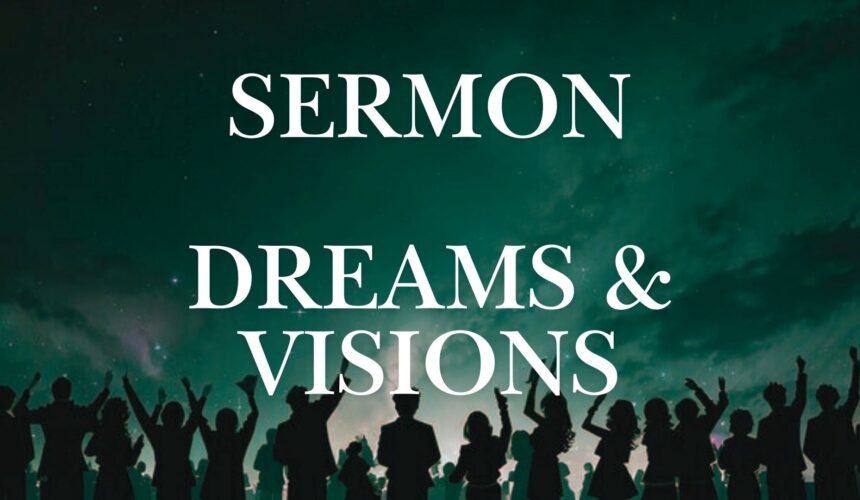Dreams and Visions: The Spirit and The Body
University Park UMC
Commitment Sunday
October 27, 2024
Acts 2:17 – 18
About 10 years ago, when I was working at Denver Urban Ministries, a colleague of mine came to me to talk about the possibility of a new church in the Denver Area. If I remember right, she was preparing to approach what was called the New Church Development Committee with a proposal, and she was sort of running the idea by several Pastors she knew to get our thoughts. Her idea was pretty simple, and I liked it. She wanted to build a church around service. Each week, she would gather the congregation, which would probably be pretty small to start with, and together they would go serve at a local homeless shelter, say, or a food pantry or some other agency that worked with people in need. Afterward, they would gather to talk about how they had seen God and what they had learned in their service. And then each week, they would do it again: serving in the name of Christ, who after all did tell his followers, “I come among you as one who serves.”
Eventually, the Annual Conference chose not to back that new church start. I don’t bring this up today to blame anyone, or rehash that decision, or say somebody was right or wrong about it. I’ve never been part of the New Church Development Committee. I don’t know anything about their decision making process, or how many other proposals came their way that year, or how much funding they had to give out, or any of that. So it’s fine with me. I was sorry that my friend didn’t get the opportunity to lead that new community, because I think it’s a really interesting idea. But for me, that whole episode raises a bigger question: what is a church? Why are some groups churches and others not? My friend was proposing a faith-based group dedicated to service. Is that church, or is that a faith-based service group? What is a church?
It turns out this is not an easy question, and it’s not one of those questions that has just one answer. I think we’d all agree that this gathering here is a church. I don’t mean to shock anyone, but if you wandered in here this morning looking for a ballroom dancing club, or a lecture on the load bearing capacity of pressurized concrete, you probably won’t find that here. We’re a church. We don’t do that other stuff.
But I think we could also agree that a church is a whole lot of different things all at the same time: we’re a community seeking God together. We’re people trying to follow Christ by practicing the way of life he showed us. We’re a group of Christ-followers who do feel called by God to serve the world. We’re community doing what the Apostle Paul calls “learning Christ,” and committed to passing the answers we find on to our children, and their children, and their children. In maybe a more pessimistic sense, you could say we’re the keepers of an ancient spiritual tradition that increasing numbers of people no longer seem to care much about. You might describe us as people just trying to figure out our lives through faith and spiritual practice, sharing each other’s burdens and celebrating each other’s joys and triumphs. Sometimes we’re a place where desperate people can get help, whether they’re about to get evicted from their homes or they’re out of medication or short on food. Every now and then, we’re a place where people can come on a Sunday morning, drag themselves across the threshold of the Sanctuary, sit in the back pew during worship, and weep – because at that moment in their lives that’s all they can manage and they know, or at least they hope, that this church is a safe place. This church is all those things, and we could probably add a few more to that list if we thought about it for a while.
A few minutes ago, we heard a passage of scripture that comes from the second chapter of the Book of Acts. Acts 2 is often called the story of Pentecost, or sometimes it’s called “the birth of the church.” Maybe you know at least the basic outline of the story, or maybe you don’t, but here’s what’s happening at this point.
The Book of Acts is a history of the early church. So by this time in the first few years of the Christian movement, the twelve Apostles, the people Jesus chose as his inner circle, have watched in horror and then scattered in terror as he was arrested and crucified. But then after his death, they’ve seen him alive again. They’ve sat down and eaten with him. They’ve touched him and talked to him and heard his voice. And in his last moment of physical presence to them, Jesus tells them to wait in Jerusalem until they receive power from God. And then in one of the weirdest moments in the entire Bible, he just sort of floats away, into the sky, leaving them standing there looking up, trying to figure out what just happened.
So by Chapter two of the book of Acts, the piece we heard this morning, the Apostles are probably pretty confused. But they’re following instructions, right? They’re staying in Jerusalem, in a house together. Jesus told them to wait, so they’re waiting for something; they don’t quite know what. It’s a Jewish holiday, so people from all over the known world are there in the city to worship and celebrate together. And suddenly there comes a sound like wind, and they see flames suspended in the air above them, and all of them start speaking languages they don’t speak. A crowd gathers around them, and every person listening hears these Galileans speaking languages they have no way of knowing.
At first, people are confused and skeptical. Some don’t know what’s going on, and some just think the Apostles are drunk. But at this point Peter, one of the twelve, makes a move you might say changes the course of history, one that leads from that place in Ancient Jerusalem to this place in Denver Colorado; from that moment in the first century to this moment in the 21st. He explains to the crowd what’s going on by quoting from the Prophet Joel, but as he does so, he gives the passage a radically new meaning.
The Book of Joel, the one that Peter is quoting here, has sometimes been called narrow, or triumphalistic, or even nationalistic. Joel associates God’s favor with one group: the ancient Israelites. He glorifies ancient Israel over every other nation. He talks of a time when other nations will be condemned by God so Israel can be restored to its former power. But Peter quotes a section of the book that at least taken by itself, seems to say just the opposite. Peter says,
“In the days to come, says the Lord, I will pour out my Spirit on all flesh. Your sons and your daughters shall prophesy. Your young shall see visions, your old shall dream dreams. Even upon my slaves, both men and women, in those days I will pour out my Spirit, and they shall prophesy.”
Peter takes a scripture passage here that was originally intended to elevate one people over everyone else. He uses it to point to a moment when people of different ethnicities and languages and geography are gathered into one. He says that moment is the fulfillment of God’s dream for all of us.
So what’s a church? Acts gives us an answer that we could add to the list I ran down a few minutes ago. The church is that body of people who become Christ for the world by working to bring together that which is torn apart, to heal that which has been wounded. The church is that body of people who are led by God’s spirit to stay open to all the new possibilities that God opens before us. Sometimes that means reinterpreting our history and coming to different understandings of our mission, as Peter does. Sometimes it means going in new directions, following God to do things we might have never imagined just a year or two ago. Maybe the church is any community led by God’s spirit, following the example of Christ, to reach beyond the limits and petty hatreds we’ve been taught and participate in the healing of God’s beautiful, broken world.
A couple of weeks ago, I attended a theology conference at St. Andrew United Methodist Church, maybe 8 or 10 miles South of here on University Boulevard. I say it was a theology conference, and it was. But it was actually called “Theology Beer Camp,” and there were six hundred people registered to attend this thing. They did serve beer, but the beer wasn’t the main attraction. I didn’t see anybody overindulge, and a lot of people weren’t drinking beer at all.
You know, a lot us involved in church nowadays wring our hands and worry about how young people no longer seem to be interested in Christian faith. We wonder what will happen as this cohort of young adults ages. Will the church continue to decline? Will it die?
Those were not the questions on people’s minds at the Theology Beer Camp. Not everybody there was in their 20s or 30s, but a whole lot of them were. There were presentations at this gathering by serious academic theologians. There were panel discussions and talks, with several of them happening simultaneously in different large rooms, with 200 or 300 people listening to each one. When some theologian made a point in one of their talks, people would erupt in cheering and clapping. The questions and discussion were lively and thoughtful. There was also, for reasons I don’t entirely get, a Lord of the Rings theme going on. People were discussing theology and listening to these heavyweight academic theologians while dressed as their favorite Lord of the Rings characters. I didn’t really understand that part, but hey, it’s fine with me. The whole thing was sort of like this “theology party.” I’ve never been to a theology party, but I’m pretty sure that’s what that was last week.
So was that the church?
I’d say yes. I’d say absolutely: a community of people becoming the body of Christ for the world, excited, joyful, reaching beyond the limits and the petty hatreds they’ve been taught, and participating in healing God’s world.
Now, I don’t know that we’re called to throw that kind of event. Maybe we are, I don’t know. But what I do know for sure, what I saw there as I’ve seen so many times, is that God’s Spirit is active and alive in the world, just as much now as it was 2000 years ago. If we can’t see it we’re probably just looking in the wrong place. God invites us to be part of that life. God invites all of us to dream dreams and see visions. We don’t know the church we will become. But I invite all of us to commit ourselves together to wherever God leads us.
Let’s take a few moments of silence.


